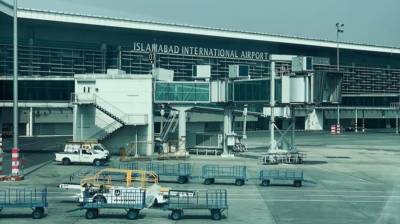By Staff Reporter
Dubai: Pakistan has approved a landmark plan for the United Arab Emirates (UAE) to assume operational control of Islamabad International Airport, advancing its strategy to outsource management of major state assets through government-to-government (G2G) partnerships.
The decision came during a meeting of the Cabinet Committee on Inter-Governmental Commercial Transactions, chaired by Deputy Prime Minister and Foreign Minister Ishaq Dar. A negotiation team, led by Prime Minister’s Adviser on Privatisation Muhammad Ali and supported by senior officials from Defence, Finance, Law, and Privatisation ministries, has been tasked to finalise the terms of the agreement with Abu Dhabi.
Officials described the deal as a “strategic pivot” in Pakistan’s broader privatisation and economic reform programme, designed to attract foreign capital, modernise infrastructure, and reduce financial losses from underperforming state-owned enterprises.
Islamabad International Airport, inaugurated in 2018 at a cost of over USD 1 billion, is the country’s largest aviation facility. With an annual passenger handling capacity of 15 million and designed for future expansion to 25 million, it represents a critical asset in Pakistan’s connectivity and trade ecosystem.
Despite its modern design, the airport has faced operational inefficiencies and financial losses, making it a priority candidate for outsourcing.
By bringing in UAE’s operational expertise, Pakistan aims to elevate service standards, enhance passenger flows, and unlock the airport’s potential as a regional aviation hub. The move is also expected to improve investor confidence by signalling Islamabad’s commitment to public-private partnerships and economic restructuring.
Deputy PM Ishaq Dar underscored that the government would ensure the agreement safeguards national interests while aligning with international aviation benchmarks. “This partnership will help transform Islamabad Airport into a facility that matches global service and operational standards,” he said.
Strategic UAE ties
Beyond aviation, the deal is viewed as part of Pakistan’s broader effort to deepen its economic relationship with the UAE, a key regional power and major source of investment and remittances. The agreement comes as Islamabad pursues a series of reforms tied to fiscal consolidation, foreign investment mobilisation, and long-term economic revival.
Analysts say the successful outsourcing of Islamabad Airport could pave the way for similar arrangements at Lahore and Karachi airports, positioning Pakistan as an attractive destination for international operators in the transport and logistics sectors.


